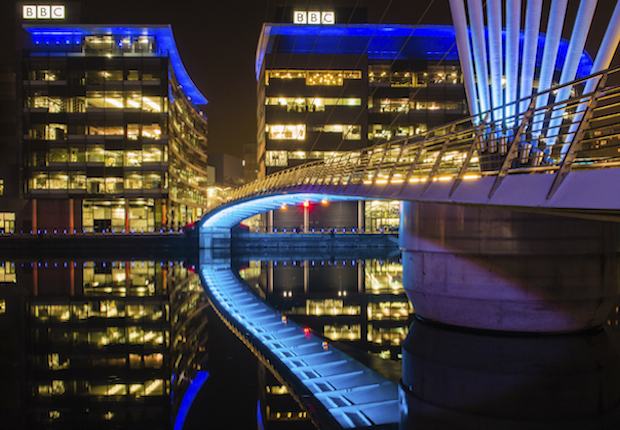
The British Broadcasting Corporation (BBC) will hold consultation meetings with staff over the next two months in order to accelerate efforts to close its gender pay gap.
Tony Hall, director general at the BBC, confirmed that the media organisation would hold wider consultation meetings with employees to support changes designed to address its 10% gender pay gap in the autumn.
The announcement formed part of a letter from Hall in response to an open letter signed by 44 female BBC employees. The open letter requested that the organisation’s gender pay gap be acted upon now, rather than by 2020, which is the deadline the BBC has set for closing the gap and for achieving a 50-50 split between men and women for all lead and presenting roles.
The gender pay gap was highlighted in an annex to the BBC’s annual report, BBC pay disclosures July 2017, which details individuals at the BBC who are paid more than £150,000 from license fee revenue in each financial year. The organisation is required to publish this information on an annual basis under the terms of its Royal Charter.
The pay disclosures report showed that presenter Chris Evans is the highest paid on-air talent at the BBC, earning between £2,200,000 and £2,249,999, and presenters Claudia Winkleman and Alex Jones are the highest paid women, earning £450,000-£499,999 and £400,000-£449,999, respectively.
The open letter to Hall, which has been signed by employees such as sports presenters Clare Balding and Sue Barker, as well as news host Victoria Derbyshire, stated: “Compared to many women and men, we are very well compensated and fortunate. However, this is an age of equality and the BBC is an organisation that prides itself on values.
“You have said that you will ‘sort’ the gender pay gap by 2020, but the BBC has known about the pay disparity for years. We all want to go on the record to call upon you to act now.
“Beyond the list, there are so many other areas including production, engineering and support services and global, regional and local media where a pay gap has languished for too long. This is an opportunity for those of us with strong and loud voices to use them on behalf of all, and for an organisation that had to be pushed into transparency to do the right thing.”
In his response, Hall said: “When I came back to the BBC I said that we needed to move from having only 14% of women on local radio breakfast shows to 50%. We achieved that in two years. I also said we needed to have a 50/50 split on all presenting and lead roles by 2020. You only have to look at our drama and entertainment programmes to see what can be achieved.
“But we need to do more to close the gender pay gap. Across the BBC, our provisional figures show that the pay gap is 10% against a national average of over 18%. I have committed the BBC to closing the gap by 2020 and if we can get there earlier then we will.
BESbswyBESbswyBESbswyBESbswyBESbswyBESbswyBESbswyBESbswyBESbswyBESbswyBESbswyBESbswy
“We are not however making a standing start. Work is already well underway across the organisation to help achieve this. There will be wider consultation meetings over the next two months so we can accelerate further change in the autumn. I would obviously value your contribution and thinking as part of this process.”